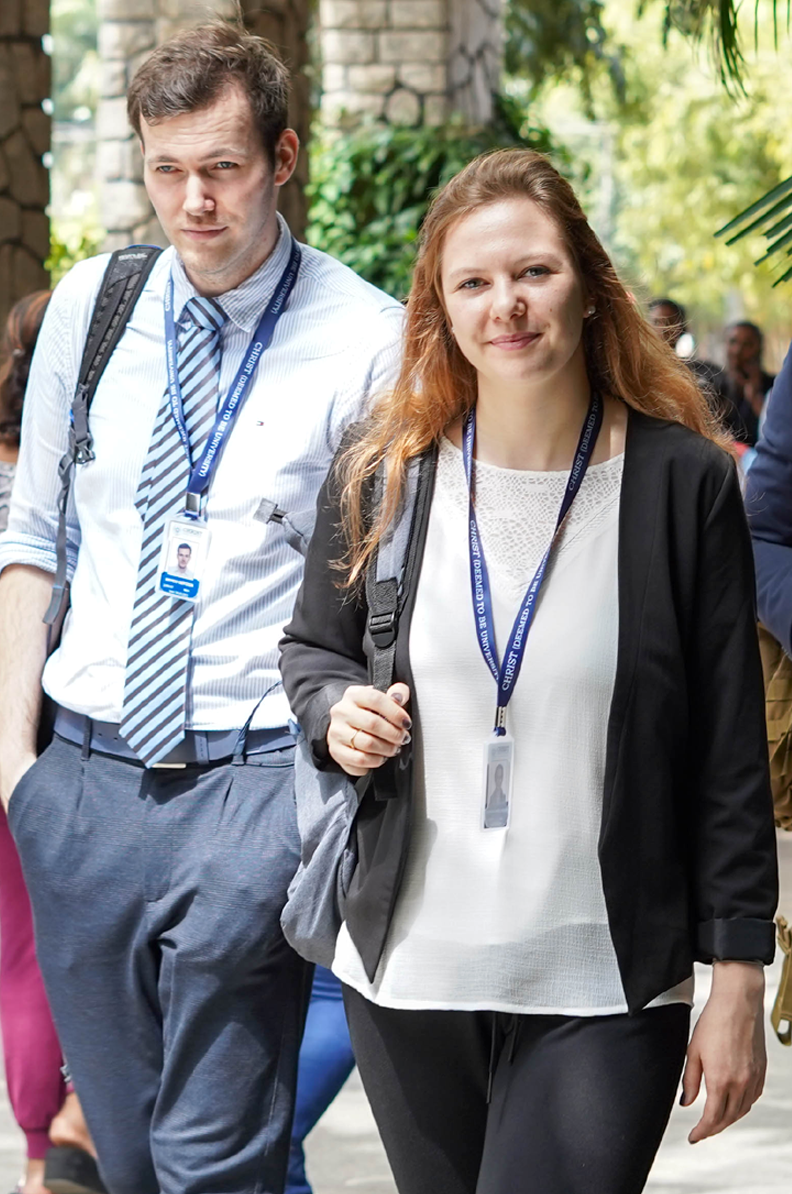1. Admission Registration fee of INR 8000/ (Non-Refundable)
2. Programme fee as per the below table
|
Year
|
# Karnataka
|
Other Indian States
|
NRI
|
SAARC / AFRICA / PIO / OCI / ASEAN
|
Other Foreign Nationals
|
Time of Payment
|
|
1
|
189,000 INR
|
209,000 INR
|
315,000 INR
|
4,500 USD
|
5,200 USD
|
Within seven days of declaration of the Selection Process Result
|
|
2
|
189,000 INR
|
209,000 INR
|
315,000 INR
|
4,500 USD
|
5,200 USD
|
On or before March 15, 2026
|
| 3 |
209,000 INR |
229,000 INR |
345,000 INR |
5,000 USD |
5,700 USD |
On or before March 15, 2027 |
| 4 |
209,000 INR |
229,000 INR |
345,000 INR |
5,000 USD |
5,700 USD |
On or before March 15, 2028 |
# The fee for Karnataka domicile students, as indicated in the table, is the actual fee payable and excludes the scholarship amount.
It is to be noted that though the fee is fixed for four years, there may be a periodic nominal increase to meet the rise in costs.
1. NRI fee is applicable for the first year for candidates who have studied foreign syllabus (has to be approved by UGC / AIU) in the qualifying examination of study in India. In subsequent years Other Indian States fee will be applicable.
(The above condition is not applicable to NRI and candidates applied under NRI Category).
2. NRI fee is applicable for the full duration of the Programme for candidates who;
2.1. Have pursued and completed their last qualifying exam from outside India.
2.2. Are NRI and candidates who have applied under the NRI category.
3. To claim the Indian category fee, the candidates should have studied last 7 years in India. (Not applicable for OCI, PIO and Foreign Nationals).
4. Admission registration fee of INR 8000/- (US $100 for foreign nationals/PIO/OCI) is non-refundable in the event of cancellation of admission. This fee will be apart from cancellation charges if applicable.
5. All Candidates If “Selected” after appearing for the final selection process, the fee may be paid through the following option:












.png)